The engine is arguably the most important part of any car — it’s the heart that powers everything. Whether it’s a diesel, gasoline, hybrid, EV, or even a hydrogen-powered motor, the engine defines how a vehicle performs, how it’s maintained, and ultimately, how long it lasts.
Among all the options, diesel engines have earned a reputation for sheer grunt, durability, and longevity, but is that truly the case? Do diesel engines last longer, and if they do, why?
In today’s blog, we’ll explain what makes diesel engines stand out, and whether they truly represent longevity — or if it’s just a well-worn myth hiding under the hood, so stick around and find out!

How Long Do Diesel Engines Last?
If diligently cared for, the toughest diesel engines can indeed last from 1,000,000 to 1,500,000 miles before needing major overhauls, and that’s simply not something most petrol engines can attest to.
The more average diesel engine might be able to last about 500,000 miles, but that’s still an immensely large number. Even smaller diesel engines can go closer to 800,000 or a million miles if kept in perfect condition, which includes, among many things, monitoring oil consumption.
Diesel engines are generally used in more demanding conditions — for heavy vehicles, towing, construction, and similar tasks.
When considering diesel vehicles, their durability is a major advantage to focus on – but that’s just the tip of the iceberg that sets them apart from petrol engines. Let’s break down what truly makes them different!

Diesel Engines vs Gas Engines Lifespan
| Feature | Diesel Engines | Gasoline Engines |
|---|---|---|
| Ignition Method | Compression ignition | Spark ignition |
| Fuel Efficiency | Higher (especially on highways) | Lower |
| Energy per Gallon | More energy density | Less energy density |
| Torque Output | Higher torque | Higher horsepower |
| Operating RPM | Lower RPM | Higher RPM |
| Engine Durability | Built for longevity | Shorter lifespan |
| Maintenance Costs | Less frequent but costlier | More frequent, cheaper |
| Ideal Use Case | Long-distance, towing, heavy-duty | Daily driving, short trips |
| Emissions Output | More NOx and particulates | More CO2 |
| Warm-Up Time | Longer | Shorter |
| Initial Engine Cost | Higher | Lower |
| Fuel Availability | Widely available | More universally available |
Why Do Diesel Engines Last Longer?
1. Diesel Engines Are Built Stronger
Diesel engines typically experience higher compression ratios, which in turn requires a stronger engine block construction. With a tougher block, diesel engines also usually employ stronger internals and all connective parts, all of which make the engine physically stronger.
Larger diesel engines also benefit from thicker cylinder walls, reinforced crankshafts, and even stronger piston rings. This added strength allows them to handle the stress of heavy loads, long run times, and extreme operating conditions without breaking down prematurely.
2. Diesel Fuel Has Lubricating Properties
The toughness of a diesel engine can also be attributed to its fuel, as diesel fuel has a higher viscosity level – it’s much oilier than gasoline, which helps reduce engine wear, and understanding how engine wear occurs is essential for a smoother operation.
This also means that the internals of a diesel engine typically benefit from better lubrication, including oil lubricating properties. Diesel fuel acts by reducing internal friction, and it will cause less wear on piston rings & cylinder walls over time.
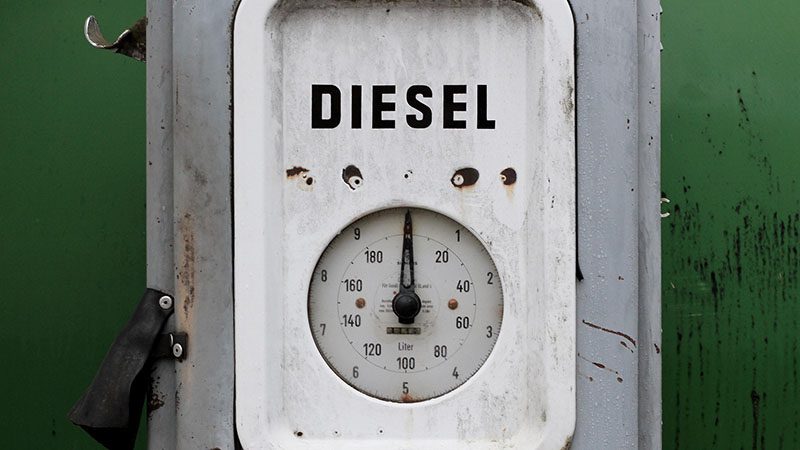
3. Diesel Engines Run at Lower RPM
Another inherent characteristic of a diesel engine is that it typically runs at lower RPM ranges. Whereas gas engines experience peak power delivery at around 4,000-6,500 RPM, diesel engines do that around 1,500-3,500 RPM.
Since RPM stands for Revolutions per Minute, it means that diesel engine internals simply move less, and that will lead to less mechanical stress & heat buildup.
4. Diesel Engines Have Fewer Ignition Components
Diesel engines are also simpler in terms of their ignition system, as they don’t use spark plugs or ignition coils – they rely on good old higher compression ignition where pressure creates the power.
With fewer sensitive and expendable components to worry about, the entire engine is likely to last for a considerably longer time, particularly compared to older engines and petrol engines.
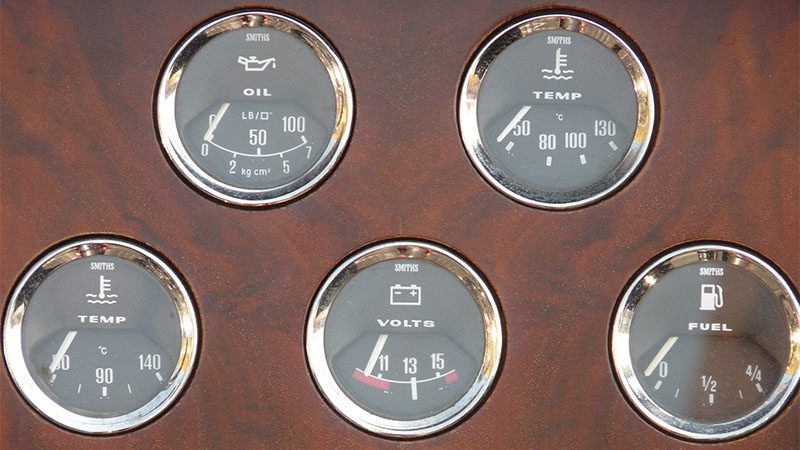
5. Better Heat Management
As previously mentioned, diesel engines experience less friction during operation, which also leads to lower overall temperatures, something gasoline engines aren’t particularly good at.
Moreover, with more materials and physical size, diesel engines also dissipate heat more effectively, all of which in turn prevents thermal breakdown.
6. Designed for Heavy-Duty Applications
Last but certainly not least, diesel engines are also designed for trucks, buses, construction equipment, trains, and ships.
This means that prioritizing durability and strength over performance is an inherent trait of a diesel engine. They can endure more beating, they can tow more, and they can carry more.
How Long Do Diesel Engines Last?
It’s not possible to answer this question definitely since there are many variables that affect the equation. This means that you should take these numbers as a rough, yet relevant estimate.
| Vehicle Type | Typical Diesel Engine Lifespan | Gasoline Engine Lifespan |
|---|---|---|
| Passenger Cars | 300,000 – 500,000 miles | 150,000 – 250,000 miles |
| Heavy-Duty Trucks | 750,000 – 1,500,000 miles | 200,000 – 400,000 miles |
| Marine & Industrial | 1,000,000+ miles | Not commonly used |
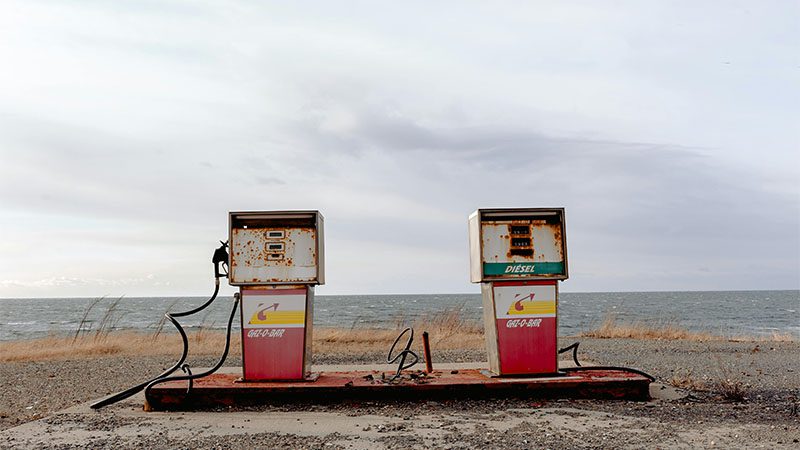
Does Diesel Fuel Last Longer Than Gasoline?
Yes! Diesel fuel is more stable than gasoline and is likely to retain its power density for longer than gasoline.
On average, you can expect regular grade gasoline to start degrading at around 3-6 months old, while diesel fuel can do double that. Diesel fuel also reacts to high-quality fuel stabilizers very well, which means that you can extend those numbers even more.
How To Maintain a Diesel Engine for a Longer Engine Life?
- Stick to scheduled service intervals – Follow manufacturer-recommended oil changes, filter replacements, and system checks as these will aid in prolonging the life of every type of engine, including diesel engines.
- Use high-quality diesel fuel – Clean fuel prevents injector clogging and improves combustion efficiency, which is why you should use it, at least from time to time.
- Change oil and filters regularly – Diesel engines produce more soot and can run hotter in certain situations, so clean oil is critical.
- Inspect key components – Keep an eye on glow plugs, turbochargers, DPF, and the EGR system as these are known to trouble modern diesel engines.
- Monitor warning lights & codes – Addressing small issues early can prevent major engine damage, so be sure to keep an eye on your service book.
- Keep cooling systems in check – Overheating can severely reduce engine lifespan as it degrades and warps essential engine components, which is why you need to always keep it in check.

What is Special About Heavy-Duty and Long-Haul Diesel Engines?
Now it’s time to talk about “the diesel-est“ of engines – heavy-duty and long haul diesel engines. These behemoths often weigh as much as multiple family cars and can typically be found in trucks, semis, buses, boats, trains, and construction equipment.
These are made with a clear emphasis on withstanding heavy-duty applications and particularly harsh conditions. Because they are big and torque-heavy, they struggle less, and thus last for longer.
With that in mind, diesel engines do excel in long-haul, long-distance environments where they can operate at a steady RPM level for a long while, which is essentially what makes them a popular choice for commercial vehicles and an efficient engine.
Diesel Engine Design and Construction
- Larger bearing sizes reduce wear under high stress.
- Higher oil capacity with beefier oil pumps (up to 15 gallons) helps manage friction and heat.
- Gear-driven components (in many heavy-duty diesels) completely eliminate the need for timing belts or chains.
- Advanced sensors and thermostats help prevent overheating and ensure efficient operation.
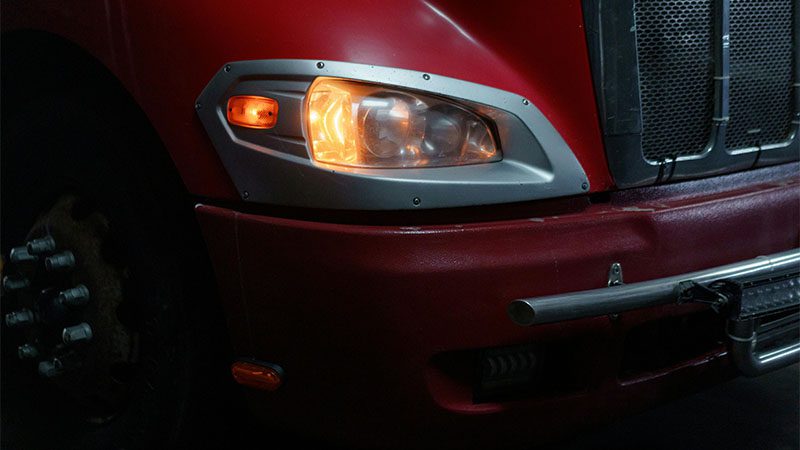
Why Diesel Engines Thrive Under Stress and Strain?
As previously touched upon, the operating conditions of a diesel engine also play a crucial role in determining its overall lifespan.
Engines that consistently run under extreme conditions—such as high heat, heavy towing, or constant stop-and-go driving—are more prone to accelerated wear and tear, and that’s the case with all types of engines.
On the other hand, operating a diesel engine under stable, moderate conditions with proper load management can extend its durability and keep it performing at its best for years to come. The idea here is to use your diesel engine for what it was designed for.
Warning Signs Your Diesel Engine Is Wearing Out
No engine type is designed to last forever, and there are certain signs to watch for with diesel engines.
| Sign | What It Might Indicate |
|---|---|
| Decreased performance | Worn injectors, low compression, or turbo issues |
| Increased fuel consumption | Inefficient combustion or dirty air filters |
| Excessive emissions | Faulty EGR, bad injectors, or worn piston rings |
| Hard starting | Weak glow plugs, compression loss, or fuel issues |
| Unusual engine noise | Engine valve wear, timing problems, or internal damage |
| Frequent stalling | Fuel delivery issues or sensor malfunctions |
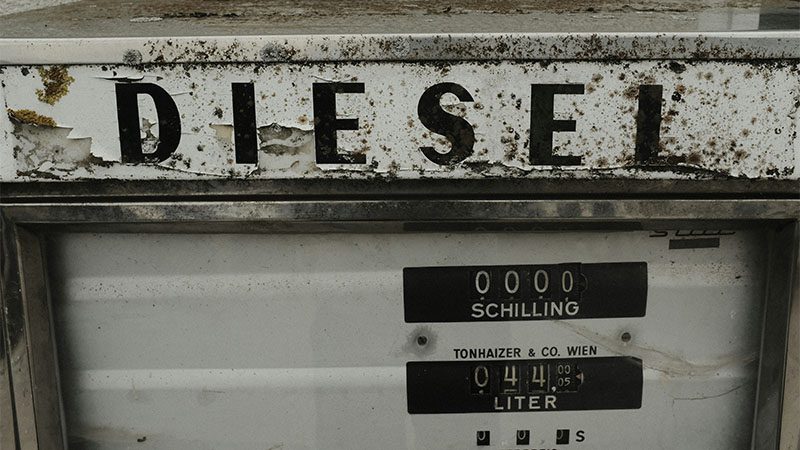
Diesel Engine Maintenance: Tips to Maximize Lifespan and Performance
If you are after an easy-to-follow, fool-proof guide to a general diesel engine maintenance and repairs checklist, here is one you can take to the bank.
- Preventive maintenance is essential
Staying ahead of problems is always better than fixing problems, so be sure to do your maintenance chores as recommended by your automaker. - Stick to the basics
Routine oil changes, fuel filter replacements, tire rotations, cleaning, premium fuel, and system inspections are small steps that go a very long way. - Minimize wear and tear
Use your diesel engine as a cruiser, as a long-distance shuttle at low RPMs, not a high-revving city beater. - Consult the pros
A qualified diesel technician can spot problems early, recommend upgrades, and keep your engine in peak condition, so if something bothers you, make the trip.
Are Diesel Engines Better?
✅ Best for:
As we all know by now, diesel engines are best for high-mileage drivers (trucks, fleet vehicles, long-haul transport). They are best for cruising, towing, heavy-duty work, hauling, and consistent speeds.
This also makes them perfect for businesses in need of cost-effective, durable vehicles.
❌ Not ideal for:
Short trips & city driving are where gasoline engines excel since they warm up quicker and don’t suffer from the same issues diesel engines do while cold.
Areas with strict emissions regulations are also perfect for gas engines since diesel engines are sadly more harmful when it comes to truly nasty stuff such as NOx, particulate matter, and unburned hydrocarbons.
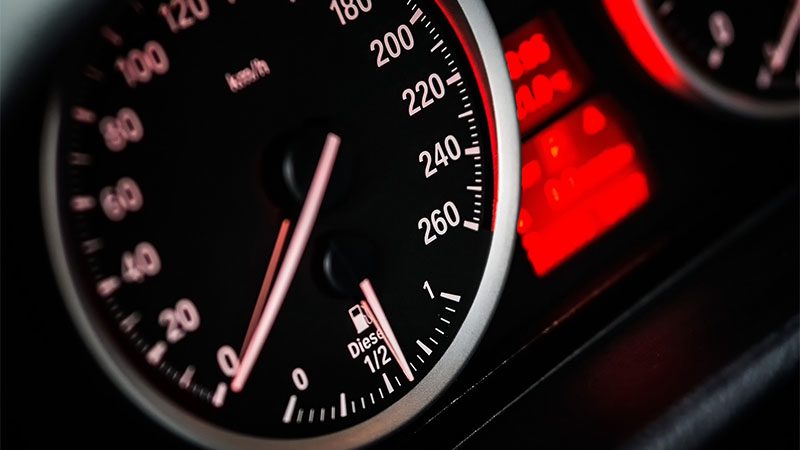
Frequently Asked Questions
Do Diesel Engines Last Longer Than Gasoline Engines?
Yes. Most diesel engines are built stronger, run at lower RPMs, and use fuel with better lubrication — all of which contribute to a longer lifespan and potentially better fuel economy.
How Long Will a Diesel Engine Last With Proper Maintenance?
With decent and consistent maintenance, many diesel engines can last 500,000 to over 1,000,000 miles, contributing to their average lifespan, especially in heavy-duty vehicles.
Is it Worth Buying a Diesel Car for Longevity?
If you drive long distances or need a vehicle for towing or heavy use, then yes — a diesel car can indeed be a cost-effective, long-term choice.
Can a Diesel Engine Last 1,000,000 Miles?
Absolutely. Many heavy-duty diesel engines reach or exceed 1 million miles with consistent upkeep and quality replacement parts.
Why do Diesel Engines Have More Torque but Lower Horsepower?
Diesel engines produce power at lower RPMs with longer stroke cycles, which generates more torque. Gas engines rev higher, leading to more horsepower in comparison.
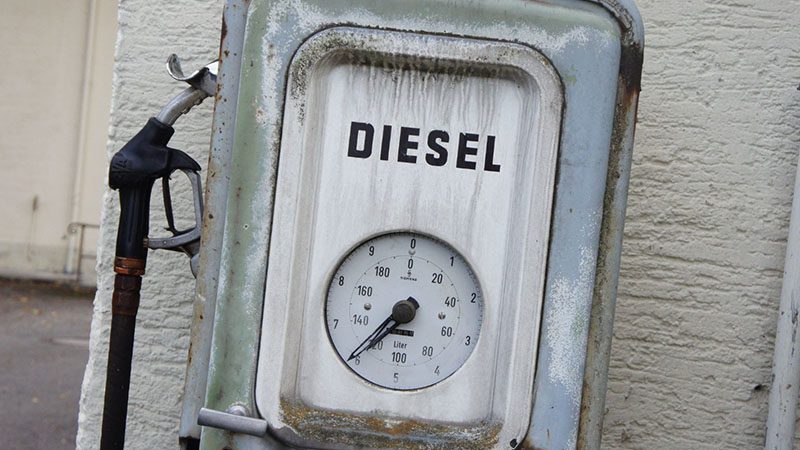
Do Diesel Engines Last Longer? Final Thoughts
To conclude today’s blog, diesel engines have rightfully earned their reputation for longevity — and for good reasons.
With stronger internals, better lubrication, and lower operating RPMs, they’re engineered to go the distance, effectively managing their operating temperature. A well-maintained diesel engine can last hundreds of thousands — even millions — of miles. Looking to keep your diesel engine running strong?
Contact Nanjing Woda Auto Technology Co., Ltd — your trusted source for premium OEM and aftermarket diesel engine parts.
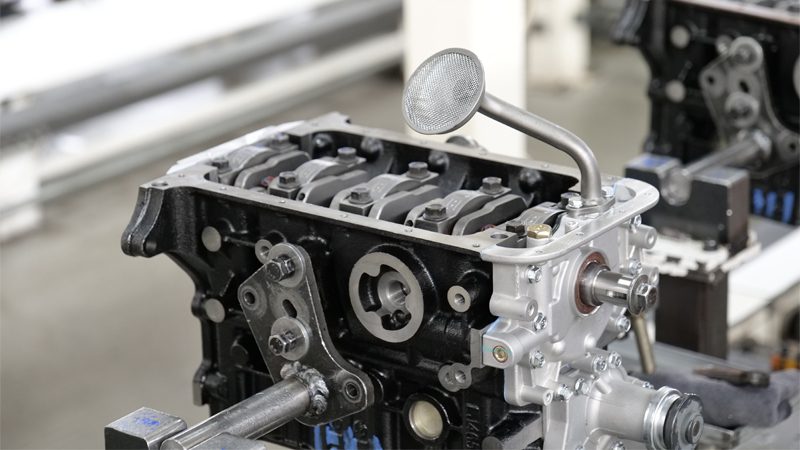
With over 25 years of experience, we offer high-quality components for:
- Engine systems
- Ignition systems
- Electrical & exhaust systems
- Suspension & steering
- And more…
We’ve supplied over 100,000 product types to customers in 100+ countries, backed by a professional sales team and reliable global shipping. Get in touch today and discover how the right parts can help your diesel engine go the extra mile!





